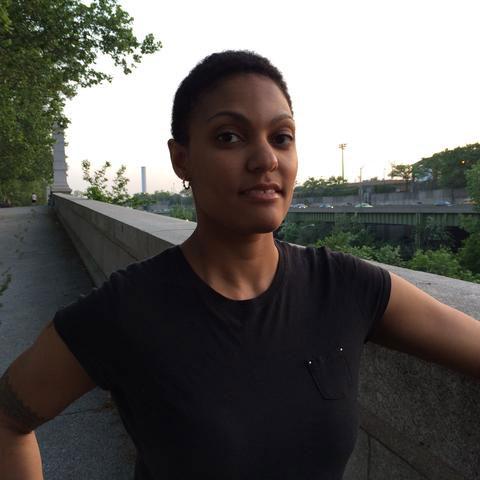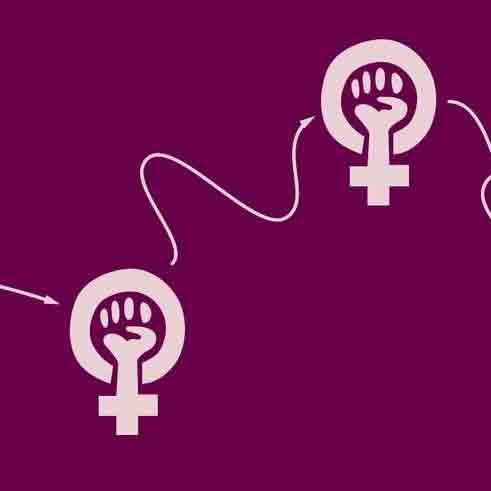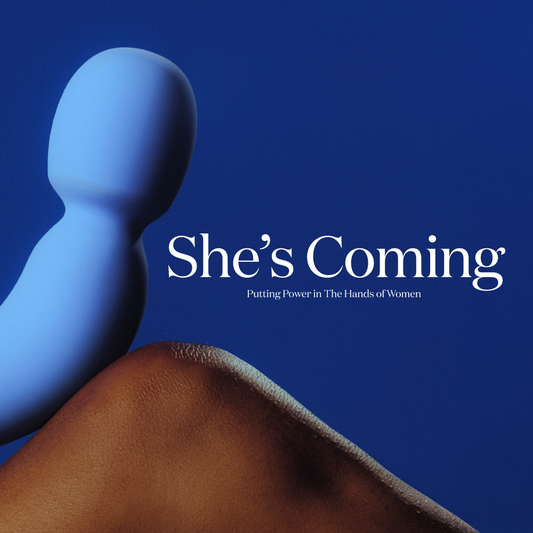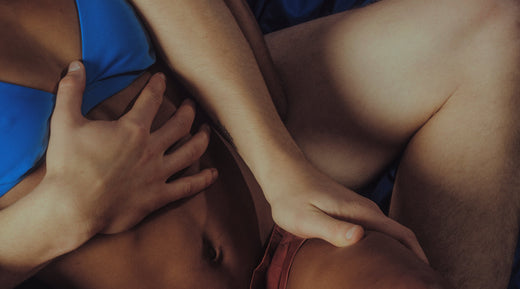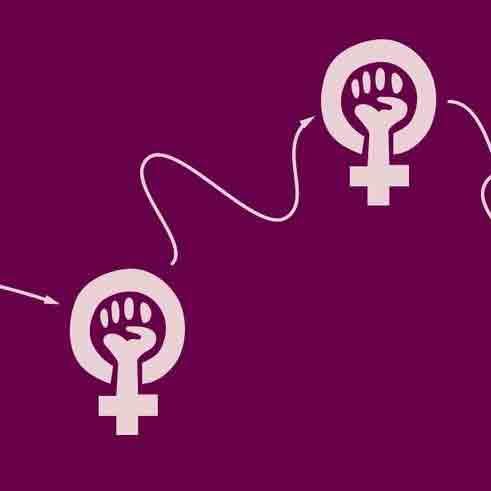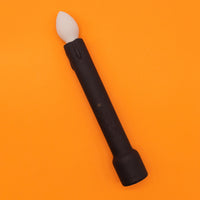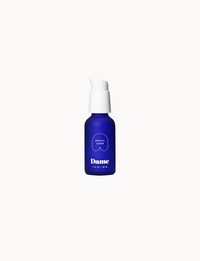As conversations regarding inclusion and diversity continue to escalate, there is one group that seems to be habitually left out of the conversation: those living with a disability. Few films, television shows, or brand campaigns today showcase members of the disabled community. Moreover, sex for those living with a disability remains totally taboo. As young actress Coco de Bruycker says, “No one really links disability to beauty, sexual attraction or eroticism.”
In an effort to shed light on the sex lives of the disabled, we spoke to a group of female-identifying individuals about their personal experiences and what they wish society would recognize. This is part one of a two-part series.
Coco de Bruycker
I’m 21 years old and I am currently studying acting in New York. I was born in Hamburg, Germany but grew up in Mainz, near Frankfurt. I was born with cerebral palsy but was raised as an ordinary girl. The easiest way to understand cerebral palsy is: Because of a lack of oxygen I had at birth, the area in my brain which controls my walking capabilities was damaged. Now when I walk, most people think it affects only my legs and hips but it’s something that impacts my whole body. It used to affect my hands as well but I trained a lot and play the piano today too, so you barely notice anything different about my waist upwards. Someone once compared me to a tango dancer, I dance through life, just when I walk I limp a bit, and my knees touch.
For many years I didn’t see myself as a sexual being because of my disability. But acting helps me really to practice embracing who I am. We only have this one body on earth to make a change for the better. It’s a tool, so we should care for it. Today I’ve come a little further in accepting myself. I compared auditioning with dating once: You come in there, you say who you are, what you do, what you have got, shine your light, you amaze people (or not) and then you walk home (and celebrate or cry, depending on the audition).
Looking back at my experience, my disability has never been explicitly addressed. Maybe because my condition is not the severest of what there is. Maybe also because I’m too easy-going but I’ve never felt any different to a woman without a disability in bed. Fear, awkwardness, humour, don’t we all have various moments of these?
On most dates, people will say: “Oh, when you got up I thought you hurt yourself or something because I forgot about your disability when we sat down.” And that’s the most beautiful compliment you can pay me, honestly. I want to be seen equally, just as an individual who walks a little funny.
Personally, I’m sexually attracted to a partner who I can connect to emotionally in the first place. I think it’s my mindset that sets disability in dating and relationships aside because I don’t see myself disabled, all-abled neither, though. Sometimes I think that I… just am? And that’s what I wish for other people with disabilities too. I found that as soon as I forgot about the fact that I’m disabled, I’m happier. I don’t deny my disability either, it’s a contradiction.
Physically sex has never been a challenge for me, even though people might assume that. The real disability was some emotional issues and barriers within myself. When I hit puberty I denied myself and my body having this perfect image in mind: The one of this seductive, female body -- majestic and ruling -- just as in fashion magazines or perfume commercials. Realizing that I don’t and won’t ever have such a body was disappointing. I felt clumsy with my disability, childishly-sweet and it took a while until I began to see myself as a sexual being. It’s a practice that goes up and down. Some days I just feel more attractive than on others and I bet any woman would feel that with me.
I feel like disability is still seen as a weakness. No one really links disability to beauty, sexual attraction, or eroticism. I haven’t acted in any sex scenes yet but I’d apply to them the same that goes for acting in general: I just wanna be seen as a human being, as a person who portrays other persons so they can see each other. If that includes sex, I’m up for the challenge.
All in all, I think that it’s possible to break stigma like these and show disability in the light of true strength, positivity and beauty because in the end, we’re just humans as well and that’s what I like the world to truly see me: As a woman, a human being, as just me, Coco. Who happens to walk a little funny.

Aspen FitzGerald-Dorsey
I was born 36 years ago in Woodbridge, VA. I’m a heterosexual cis-gender gal who’s lived in Manhattan for 14 years. Two years ago, I had to force shutdown my life as an Apple computer know-it-all and a year later I was diagnosed with Adult-Onset Stills Disease. Even before I was diagnosed with Still's, I had to leave my job at the Apple Store because I could no longer stand for 9 hours a day. My flare-ups feel quite literal because there's often a fever that fires up fast. That, combined with swollen joints, is what keeps me off of my feet. On good days, it just feels like my knees are about forty years older than I am. Now, I work as a video editor at a company that took a chance on girl with a mysterious disability.
I just got back to dating and it’s tricky. I wish that I could just say I’m ditching out of the date early because I’m gonna turn into a pumpkin without anyone taking it personally because I really mean it. When I have a fever, I gotta go. No one wants to carry me home because I’m heavier than I look. And if I don’t get going — it may actually come to that! I wish I could cancel without using the word “sick” without being called a flake.
I feel like getting out there and looking for new possibilities can be hard when I feel like my fuel tank is never full and always has a leak. No one wants to settle for a lackluster situation, but finding someone shiny and new can be exhausting when you don’t go to bars because drinking upsets that precarious energy balance and half of the good parties are in Brooklyn... doubly exhausting if you are doing those things.
These days, I look for partners who can take care of themselves. I’m obsessed with self-care by necessity and no longer have the manic-pixie-dream-girl fantasy of inspiring people I care about to be better versions of themselves. If we’re dating, I hope that I bring out the very best in you, I really, truly do. But these days, I can barely lead by example. I cannot be worried about someone who is going to self-destruct.
Most of the time, I think putting in the effort to find a good partner is worth it. I’m so often in pain that it’s therapeutic, if not downright transformative, to have an intense physical experience that is purely about pleasure. I do yoga every day just to be able to walk around without noticeable trouble. Yoga also makes it easier for me to get into positions that work for me. I have heard that for some people, it’s hard to feel like you’re in your body. I can’t even imagine that because chronic pain makes me hyper-aware and hyper-sensitive. But maybe that’s why sex is so good for me. I am completely in tune with my body and know what works.
I think that the other half of a successful sex life is having a partner who is in tune with me. My favorite partner is a master at partner pleasure and, had I not been able to see his hands, I would have sworn he was taking notes every time. He was always trying new things and tweaking what works. If I thought I could get away with it, I’d seriously have commissioned him write me a searchable PDF manual, including diagrams, to share with prospectives.
On the flip side, having sex with an inflammatory disorder can be a nightmare. Sometimes I’m struggling the next day — what do I tell my boss? “Oh, don’t mind this limp... my joints are sore because... bedtime yoga?” AND DON’T GET ME STARTED ON THE UTI! Now, I know that this is a chronic problem for many women without chronic pain. I had exactly one and it made me feel like I would have to swear off sex forever. I had pain for months after the infection was gone and needed the regular help of a urogynecologist, which I’m embarrassed to be embarrassed about. Bladder pain is so not sexy. Yet somehow, when I’m with the right person, the private pain of my privates seems worth it.
While I may not want to discuss the gory details 24/7, I’m not ashamed of having a disability and I’m proud of the strength and awareness I have because of it. I hope that the misconception of general embarrassment goes away in my lifetime. We are not embarrassed to talk about our lives just because we don’t want to share everything all the time. Some people need more privacy than others. Asking for clarification is usually better than assumption. Especially when sex is involved.


